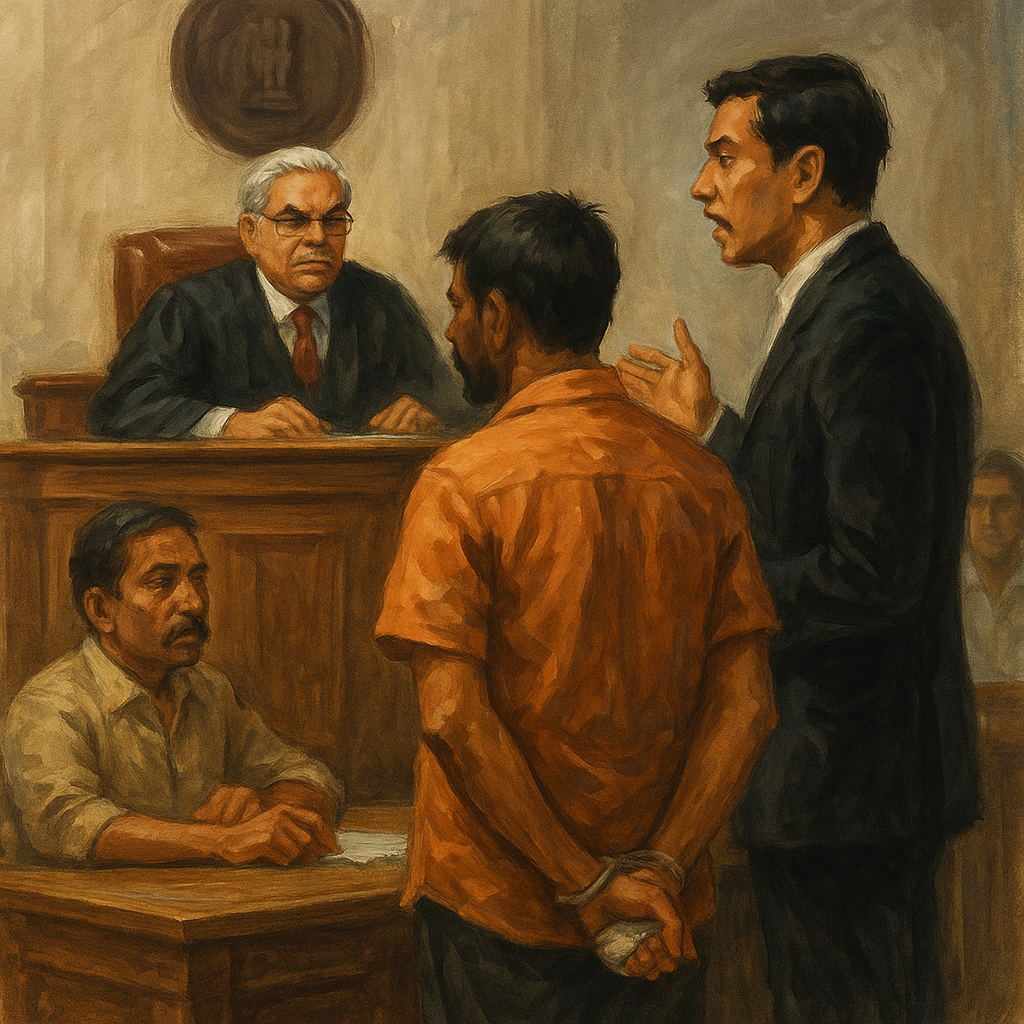Simplified Explanation of the Judgment
In a recent judgment, the Patna High Court acquitted six individuals accused of attempting to murder a man in 2004 during a violent altercation in Bhojpur district, Bihar. The court set aside their conviction on grounds of unreliable evidence, contradictions in witness statements, and the prosecution’s failure to prove the case beyond reasonable doubt.
The original incident occurred on December 9, 2004, when the informant and his brother-in-law visited a local shop in Balbandh village. According to the prosecution, an argument erupted between them and one of the accused, leading to a group assault. One of the accused allegedly fired a pistol, injuring the informant’s left thigh.
The accused were charged under Sections 341 and 307/34 of the Indian Penal Code (IPC) and Section 27 of the Arms Act. The trial court convicted them in 2013, sentencing each to ten years of rigorous imprisonment for attempted murder, one month for wrongful restraint, and in the case of the shooter, three years for arms possession. These sentences were to run concurrently.
However, in the appeal heard in 2024, the High Court examined several flaws in the prosecution’s case. All key prosecution witnesses turned out to be related to the informant, raising concerns about impartiality. Two crucial witnesses — the shopkeeper where the incident allegedly began and the informant’s brother-in-law — were not examined in court, weakening the narrative.
Further, the medical report showed only a single gunshot wound and no signs of injuries from stones or other weapons, contradicting the version that multiple accused assaulted the victim with weapons like stones and sticks. Moreover, the location and manner of the assault varied across different witness testimonies.
The court also noted that the First Information Report (FIR) was neither available on record nor proved by the prosecution, which is critical in a criminal trial.
Taking all these discrepancies into account, Hon’ble Mr. Justice Ramesh Chand Malviya concluded that the prosecution had failed to establish the charges beyond a reasonable doubt. Therefore, the previous conviction was set aside, and all appellants were acquitted of the charges.
Significance or Implication of the Judgment
This judgment underscores the importance of procedural accuracy and credible witness testimony in criminal cases. It highlights how convictions based solely on the statements of interested parties—without corroborative evidence—are prone to reversal. For the general public, it emphasizes the need for a fair investigation and reliable evidence to ensure justice. For law enforcement, it serves as a reminder to ensure that all key witnesses, including those present at the scene, are presented during trial.
Legal Issue(s) Decided and the Court’s Decision
- Whether the prosecution proved the case beyond reasonable doubt:
➤ No, the evidence was contradictory, and key witnesses were not examined. - Whether injuries corroborated the nature of the alleged assault:
➤ No, the medical report indicated only a gunshot wound and no signs of stone or stick injuries. - Whether FIR and eyewitnesses were properly presented and proved in court:
➤ No, FIR was not on record, and crucial eyewitnesses were not examined.
Case Title
Raj Kumar Bhatt @ Raj Kumar and Ors. vs The State of Bihar
With: Wakil Bhatt vs The State of Bihar
Case Number
Criminal Appeal (SJ) No. 279 of 2013 with Criminal Appeal (SJ) No. 381 of 2013
Citation(s)– 2025 (1) PLJR 112
Coram and Names of Judges
Hon’ble Mr. Justice Ramesh Chand Malviya
Names of Advocates and who they appeared for
• Mr. Uday Kumar, Advocate – For the Appellants
• Mr. Mukeshwar Dayal, APP – For the State
Link to Judgment
MjQjMjc5IzIwMTMjMSNO—am1–oRZRcpeRrQ=
If you found this explanation helpful and wish to stay informed about how legal developments may affect your rights in Bihar, you may consider following Samvida Law Associates for more updates.








